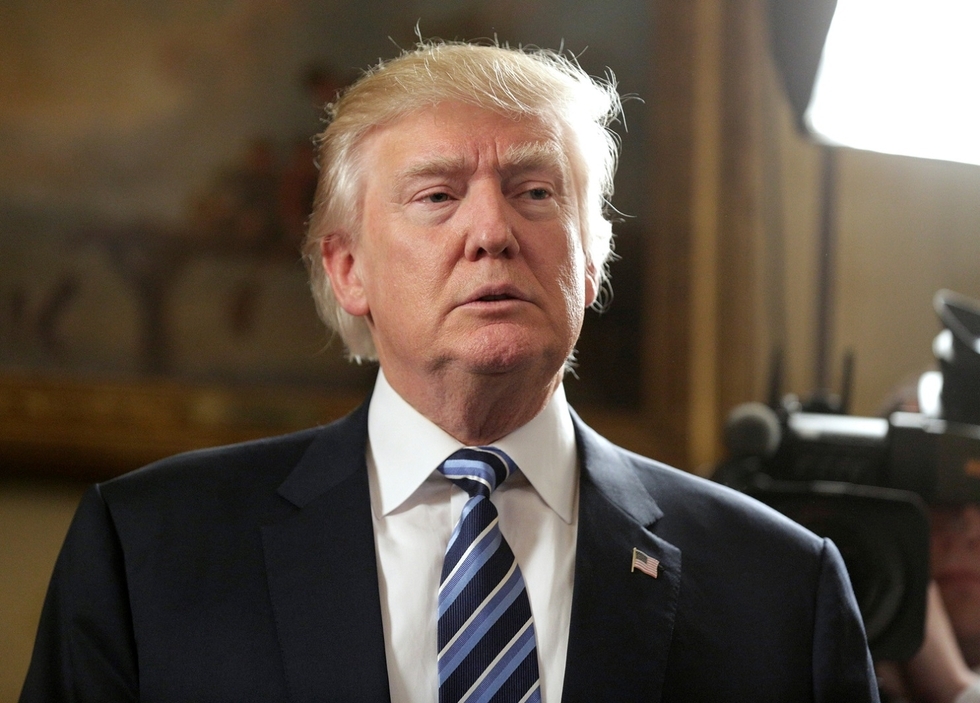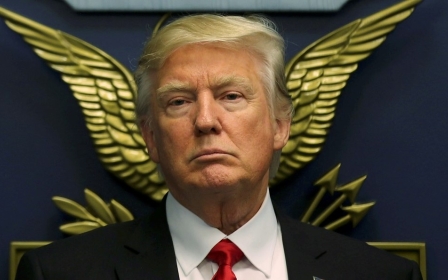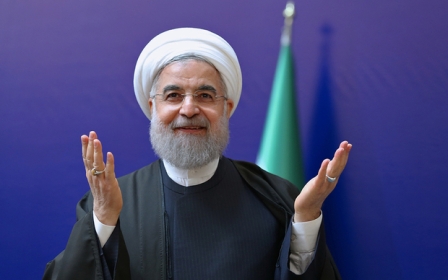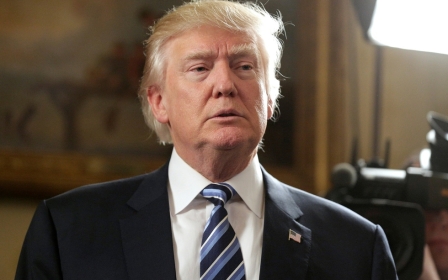In Middle East, Trump's travel curbs decried as unjust, insulting

Iran, one of the seven countries, said it would stop U.S. citizens entering the country in retaliation to Washington's visa ban, calling it an "open affront against the Muslim world and the Iranian nation".
"It's not right to portray huge groups of Arabs and Muslims as possible terrorists," Najeeb Haidari, a Yemeni-American security manager in Yemen, said a day after Trump put a four-month hold on refugee arrivals and temporarily barred travellers from war-torn Syria and six other mainly Muslim nations.
"This is a stupid, terrible decision which will hurt the American people more than us or anybody else, because it shows that this president can't manage people, politics or global relationships," Haidari added.
Sudan called the decision to ban entry of its citizens very unfortunate in light of "historic steps" just weeks earlier to lift US sanctions for cooperation on combating terrorism.
In the most sweeping use of his presidential powers since taking office a week ago, Trump signed an executive order on Friday to pause the entry of travellers from Iran, Iraq, Libya, Somalia, Sudan, Syria and Yemen for at least 90 days.
He said separately he wanted the US to give priority to Syrian Christians fleeing the war there. The travel curbs began immediately, causing confusion for would-be travellers with passports from the seven countries.
Sources at Cairo airport said the five Iraqi passengers and one Yemeni, arriving in transit to Cairo airport, were stopped and re-directed to flights headed for their home countries despite holding valid visas.
A Syrian family holding US visas who had travelled overnight from Beirut to Paris was prevented from boarding a connecting flight onto Atlanta, Lebanese airport sources said. They flew back to Beirut later on Saturday.
In Doha, Qatar Airways advised passengers bound for the US from the seven newly banned countries that they needed to have either a US green card or a diplomatic visa.
Farea al-Muslimi, a US-educated Yemeni political commentator with the Sana'a Center for Strategic Studies said: "It's insane - but what part of Trump is sane?
"This punishes thousands of innocent people for things they have no control over, when the last few attacks in America had to do with radicalized US citizens, not foreigners."
A 34-year-old Sudanese man who won the US Green Card lottery said he was worried he would be forbidden entry. "If I'm barred...this will destroy my life because I resigned from my work in Sudan and was preparing to settle in America," he said.
Fariba, an Iranian-American who declined to give her family name and lives in New Jersey, said her parents would not be able to make a planned visit to celebrate Iranian New Year in March.
"What have we done to deserve such a ban? ... This ban will ruin our lives. Thank you Mr President. Are you making America great by hurting innocent people?"
Some people planning US travel said the curbs would harm their careers. Others feared for the safety of their families.
In Baghdad, Bayan Adil, a doctor working in the Iraqi Health Ministry who applied for a US visa to attend a medical seminar, said Iraqi academics should visit Europe instead of the US, where they were no longer welcome.
"Trump's decision is unfortunately a humiliating insult not only for us as academics but for all Iraqis," she said.
Her comments were echoed by Abd Al-Jafar, a 43-year-old university professor in Sudan's capital Khartoum, who said he had sought to go to the US for doctoral studies.
"This decision, if implemented, will be a disaster," he said. "I have work in Sudan and have no desire to emigrate to the US, just to study there. This decision is illogical."
In Beirut, Joumana Ghazi Chehade, 34, a refugee from Yarmouk in Syria living in the Lebanese capital's Burj al-Barajneh camp, said the decision would "destroy a lot of people".
"Of course we're not going to go blow anything up ... All we are asking for is security and freedom."
Mirna, an American and a mother of two living in Syria, said it was clear Trump "doesn't want to receive Syrian Muslims ... we have to expect the worst from him because he is a crazy man."
New MEE newsletter: Jerusalem Dispatch
Sign up to get the latest insights and analysis on Israel-Palestine, alongside Turkey Unpacked and other MEE newsletters
Middle East Eye delivers independent and unrivalled coverage and analysis of the Middle East, North Africa and beyond. To learn more about republishing this content and the associated fees, please fill out this form. More about MEE can be found here.




